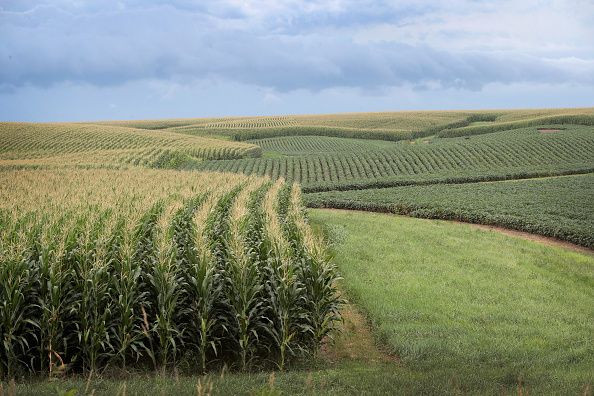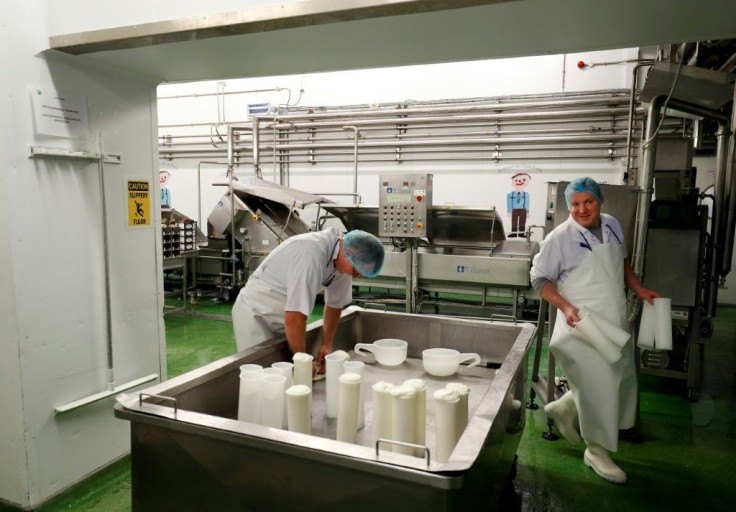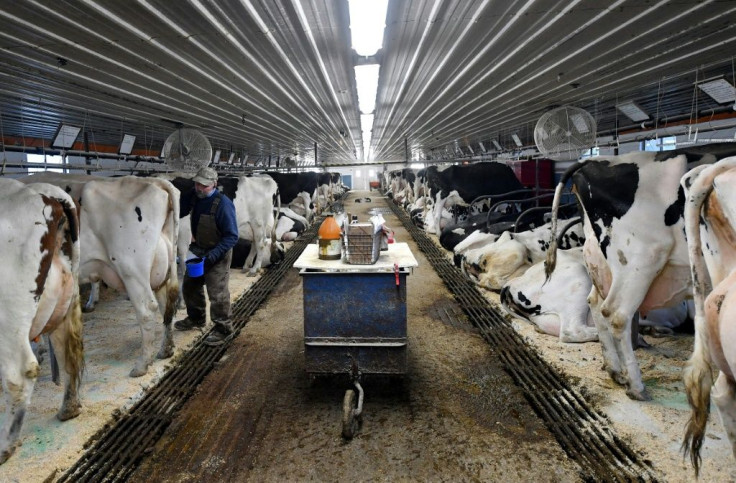Coronavirus Crisis In Farms Threatens Food Security; Trump May Cut Workers' Pay

KEY POINTS
- Coronavirus lockdown has severely affected the agriculture sector
- The prolonged U.S.-China trade war had weakened the sector considerably
- Trump administration is considering a reduction in migrant labor wages to help farmers
The coronavirus crisis is triggering food security concerns as farms are struggling to keep up production amid enforcing lockdown norms like reducing the number of workers and practicing physical distancing.
Farmers across the country are facing the added burden of a drop in consumption as people stay at home and many stores in the biggest markets like New York City remain shut.
Already, the farm sector has been the most affected by the U.S.-China trade war unleashed by President Donald Trump. The pandemic has worsened the situation as consumption has plummeted, a report in the CNBC said. Crop and livestock prices are tumbling and concerns are mounting about sudden labor shortages, the report said.
Agriculture, food and related industries contribute about 5.4% of the U.S. gross domestic product and the country’s food security depends on a viable agriculture sector. The global pandemic that originated in China in December last year has so far infected 560,433 people in the U.S. and killed 22,115, the highest number in any country in the world. A prolonged lockdown could cause a fall in production and affect the nation’s food security.

“We were already under extreme financial pressure. With the virus sending the prices down — it’s getting to be the straw that broke the camel’s back,” Iowa farmer Robb Ewoldt told the CNBC. “We were hoping for something good this year, but this virus has stopped all our markets,” he said.
The Trump administration has restricted immigration from Mexico — a key source for cheap farm labor – in an attempt to curtail for the spread of the virus that has affected more than 200 countries and other sovereign areas. Labor shortages right before the planting season are threatening the viability of farming.
However, the Trump administration is also looking at cutting the wages of the migrant laborers to help the farmers. Non-profit media outlet NPR first reported about the move, which could affect workers on the H-2A seasonal guest-worker program who form about 10% of farm workers.
"The administration is considering all policy options during this unprecedented crisis to ensure our great farmers are protected, and President Trump has done and will do everything he can to support their vital mission," a White House official told NPR.
Change in people's food habits
Farm trade groups have been lobbying the government for financial aid for farmers enduring price drops, as well as temporary work visas for seasonal farmworkers from Mexico. Consumer demand for items like meat and fish has dropped as restaurants are shut. More people are turning to cheaper, nonperishable goods like pasta and beans at grocery stores, according to the report.

In an indication of the times ahead, agricultural commodity futures have declined around 10%. Soybean futures are 4% lower and wheat by nearly 2%. Futures prices for lean hogs have dropped 12% and prices for cattle nearly 13%.
Worsening situation
Many dairy farms have been struggling over low milk prices during the past few years. The coronavirus pandemic has worsened the situation with schools and boarding houses closing, the WTNH reported. “Foodservice took a lot of our dairy products in the form of bulk milk and bulks creams and they have shut down,” it quoted Fairvue Farms owner Paul Miller as saying. “We get about $1.60 a gallon. Our costs are around $1.80 so we’re already in a predicament,” Miller said.

Livestock producers have urged the Department of Agriculture to allow them to delay government loan repayments to help farmers deal with the pandemic’s impact on marketing and prices. Efforts to secure debt assistance for farmers have been on the rise. Farmers who depend on direct access to customers can't sell their produce, according to Dale Moore, executive director of the American Farm Bureau Federation.
Although the U.S. coronavirus stimulus bill has earmarked $14 billion to the Agriculture Department’s Commodity Credit Corp spending authority and another $9.5 billion for farmers hurt by the pandemic, the farmers have sought more. The National Cattlemen’s Beef Association has urged Congress to increase the CCC lending authority to $50 billion.
© Copyright IBTimes 2024. All rights reserved.





















